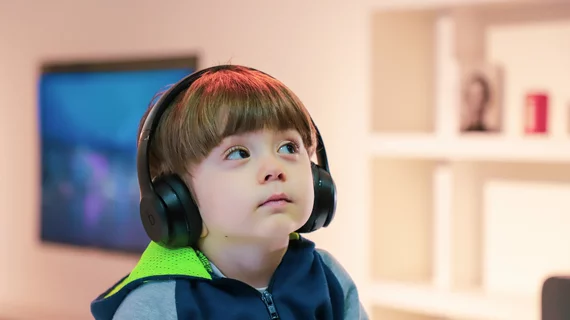AI picks out blood biomarkers for autism
Researchers have used machine learning to whittle a field of more than 1,100 plasma proteins down to nine that correlate with autism spectrum disorder (ASD). If verified in additional trials, the advance will facilitate care planning much earlier than the current average age of diagnosis, 4 years old.
The team describes its work in a study published Feb. 24 in Plos One.
Laura Hewitson, PhD, of the Johnson Center for Child Health and Development in Austin, Texas, and colleagues analyzed serum samples from 154 boys between the ages of 18 months and 8 years. Half the field were autism patients, the other half typically developing peers.
Using a commercially available assay platform, the researchers used three separate algorithms to find the nine proteins that, together, correctly pointed out the autism patients while deselecting the non-autism cohort more than 80% of the time.
“This novel set of proteins has the potential to be an efficacious blood-based biomarker for the early identification of ASD in boys, particularly since behavioral and developmental assessments are not easily administered in very young children,” the authors write.
“While the use of machine learning for ASD diagnosis is still in its infancy,” they add, “identifying key proteomic biomarkers may also lead to targeted intervention strategies as we further elucidate the functional processes associated with ASD and the mechanistic interplay between brain structure and behavior.”
In news coverage by UT Southwestern Medical Center in Dallas, senior author Dwight German, PhD, of that institution says the team’s hope is for “a day when a child is identified using blood biomarkers as being at risk for developing ASD and therapies can be started immediately. That would help the child develop skills to optimize their communication and learning.”
The study is available in full for free.

